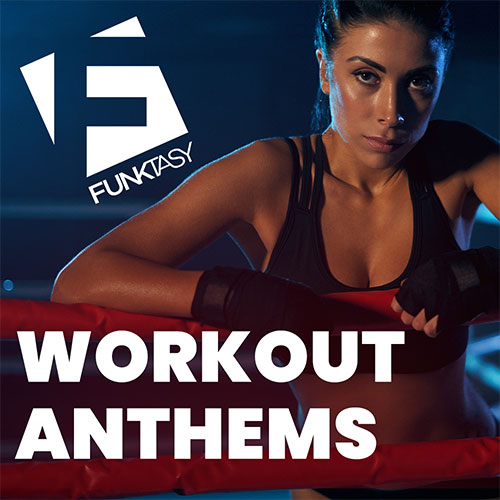Here are the most frequently asked music publishing questions answered by experts in music licensing and publishing.
Everyone has questions about the publishing world. That side of the industry is endlessly layered and is generally just a big mystery.
Music publishing is one of the most complex sides of the industry but can also be one of the most lucrative for artists, if dealt with correctly. In this article, we try to tackle some of the biggest music publishing questions asked by artists with answers from various publishing experts from around the world.
What Is Music Publishing?
“Music publishing is the business of commercial exploitation of the musical compositions in return for royalties and a possible increase in valuation of the catalog.” – Unique Oliver (Licensing and Publisher Specialist at Mavin Records)
“In a nutshell, music publishing is the monetization of music through rights and royalties.” – Christina Faith (Executive Director at Muzikii Digital Music Publishing Company)
How Has Music Publishing Evolved Over The Last Two Decades?
“Music publishing has evolved from just having composers in a room to create music to the emergence of music publishing companies funding recordings and raising the profile of songwriters.
Over the last two decades, Nigeria witnessed the emergence of local music publishing companies for the first time which include GreenLight Music Publishing, Replete Music Publishing Ltd, Premier Music Publishing Company Limited, and many others.
Songwriters and composers from Nigeria have been able to secure deals with the major publishing companies namely Sony BMG, Universal Music Group, and Warner Music Group and, at the same time, labels have been able to strike partnerships with these major publishing companies, particularly The Aristokrat Group and Mavin Global Entertainment thus advancing the business of music publishing over the last two decades.” – Unique Oliver (Licensing and Publisher Specialist at Mavin Records)
What Does The Future Look Like For Music Publishing?
“The market size of the music publishing industry in the US has grown 3.0% per year on average between 2016 and 2021, and is expected to continue that growth rate per ibis. Over half of the revenue generated in today’s music is driven by the independent sector, particularly streaming growth that’s driven by independents (labels and artists). There is a silent war/revolution happening, the majors against the independent. In a survey taken by both major and independent musicians, it was expressed those musicians would rather be independent than musically and creatively bound by major labels, which leaves them without ownership of their music. This is one of many reasons why the independent market continues to flourish. The same applies to traditional publishers who hide behind issued advances and signs musicians to exclusive deals and acquire copyrights for themselves. Because of this, many musicians rather find placements themselves or a non-traditional publishing company such as Muzikii Digital Music Publishing who issue non-exclusive deals, allow artists to retain their copyrights and royalties, than to sign with traditional publishing who’d do the opposite.” – Christina Faith (Executive Director at Muzikii Digital Music Publishing Company)
What Are Writing Camps And How Can Artists & Writers Get Involved?
“A writing camp is simply a gathering of creatives mostly songwriters, producers, lyricist, band members and other composers with the aim of exploring creative options for a music project. Artists and writers can always get involved through invitations by the organisers.” – Unique Oliver (Licensing and Publisher Specialist at Mavin Records)
“Basically, songwriting camps is where producers and songwriters meet up to collaborate and network. Getting involved is simple. Do your research on some of the camps and signup.” – Christina Faith (Executive Director at Muzikii Digital Music Publishing Company)
How Can Artists And Songwriters Connect With Music Publishers & How Can They Make Themselves Stand Out?
“Have great tangible quality music. Professionalism. When approaching a publisher make sure that you’re professional. When sending an email please have a body instead of just your stage name and the attached tracks. They will surely be overlooked and trashed. Follow-up, but don’t be a nuisance.” – Christina Faith (Executive Director at Muzikii Digital Music Publishing Company)
“Artists can connect with music publishers via pitching to publishing companies, songwriting bootcamps and through music publishers association events.” – Unique Oliver (Licensing and Publisher Specialist at Mavin Records)
“The majority of Japanese music market being domestic (approx. 80%), we work with international writers who understand and can adjust to the “J-Pop recipe” when pitching songs for Japanese artists. Of course, after the K-Pop international success, we started to see some demands for demos in the direction of “US hits” from some artists who want to reach an international audience.” – Etsuko Matsubara (General Manager of Copyrights Administration at Avex Music Publishing Inc.)
What Do You Look For In A Track When You Sign A Publishing Deal?
“If I’m looking to sign someone to a publishing deal who does ‘tracks’, they have to deliver something I haven’t heard before. And it needs a hook that takes my head off.
Generationally, there have been these kinds of records that have never been replicated in clubland, like Robert Owens’ “I’ll Be Your Friend”, “Show Me Love” by Robin S., or even commercial powerhouses like “Sandstorm” by Darude. Sorry for the prehistoric answer track-wise, but all of those are classics for a reason. They stand up today for that same reason: it’s identifiable, it’s original and it can be redeveloped into the future.
Publishers are really looking for the total package, where the drums and bass are so interconnected, you can’t escape them. I look for someone who experiments with sounds.
Don’t give me patches from a synth. I know them all and so do my colleagues. This is your shot, so go for it.
Connecting with your ‘sound’ as a publisher and working with you to explore your future is really what I look for. Do you have an open mind to create, or are you just a one-track pony?
The other part is who is singing the song. As a publisher, I’m always looking to try and find someone who’s voice has elevated what I’m listening to, and to find a way for them to get the credit they deserve with a song under their own name and banner, and not be a front person for the rest of their lives on various tracks. Does the melody elevate? Is it linear? Give me something flat and I just look for the delete button.
Finally. Make sure your track is ready. So many half-baked ideas are out there. Don’t compete with them. Compete with the future. Because that’s what we are looking for.” – Vincent Degiorgio (President of Cymba Music Publishing)
How Would You Differentiate Songwriters And Composers From Performers?
“Songwriters can be anything from musicians playing an instrument to non-performers that happen to simply know how to write great songs. Some artists don’t, and the converse of that is that some track creators don’t know how to structure a song. A songwriter is writing for the love of the creation. Others might be doing so for their love of economy. A real composer provides a vision. It survives every edit, every remix, every journey it takes.
Performers in this genre are the most misused as it’s mostly about branding of whom they are ‘fronting’ and the performers for many years have to struggle to escape it. Or a label imprint.
They’re not tracks. They are songs. If you’ve written a track, it’s anonymous until someone provides a vocal that makes it a song.
Your recent interview with dance icon Crystal Waters is an example of the opposite. When “Gypsy Woman” was floating around, everyone was talking about the Basement Boys, her producers at the time who were ‘white hot’. Nobody seemed to connect with the fact that Crystal also co-wrote the song and then, sang the hell out of it. Without her, we wouldn’t be talking about a classic song, and an enduring artist who has outlasted the competition she once had.” – Vincent Degiorgio (President of Cymba Music Publishing)
What Is The Most Profitable Revenue Source For Artists And Songwriters From Any Publishing Avenue?
“Definitely sync for TV or film if you’re lucky enough to land one. They can be hard to get but very lucrative with the right project. No matter what it’s important for a songwriter to make sure their works are registered with all of the different rights organizations.
In Canada these are SOCAN, CMRRA and Re:Sound if the writer is also the performer. You can also sign up for the MLC directly or opt in via CMRRA. This will make sure that your works are properly monetized whenever they are used or played.” – Katie Seline (Account & Project Manager at Music Rights Clearance)
There Are Many Self-Publishing Resources Available For Artists. What More Can A Music Publishing Firm Provide For Artists And Songwriters?
“It really comes down to what kind of capacity and knowledge a songwriter and/or artist has to manage their songs. Working with a music publisher can offer a number of services that a self-published writer or artist may not be familiar with such as creative services, pitching services, copyright management and royalty accounting. Services vary from publisher to publisher, so it really depends on what the artist or songwriter is looking for. You definitely need to do your research!” – Katie Seline (Account & Project Manager at Music Rights Clearance)
Can An Artist Live Off Of Publishing?
“The answer to this question is yes and no.
We are all aware that music publishing is the promotion and monetization of music compositions. Thus, for an artist as in a performing artist to be able to live off their publishing, this requires them to have either composed all their songs by themselves or co-wrote or co-produced their work.
However, this is only just one factor that determines if they can live off their publishing or not.
Another thing to consider is the success of the song. Music publishing royalties come in three forms:
- mechanical rights, which in today’s world is mostly generated through streaming services, downloads, and physical sales
- public performance royalties, think radio broadcasts, songs you hear in stores or at restaurants, etc.
- sync (synchronization license fees), which is generated through movies, TV shows, ads or even radio shows.
With this in mind, if an artist wants to be able to live off their publishing alone, they will have to compose a song that would be able to generate income through each of the royalty streams and this depends quite heavily on how popular the song is.” – Ola A. Zane (Publishing & Licensing Supervisor at Funktasy Records)








